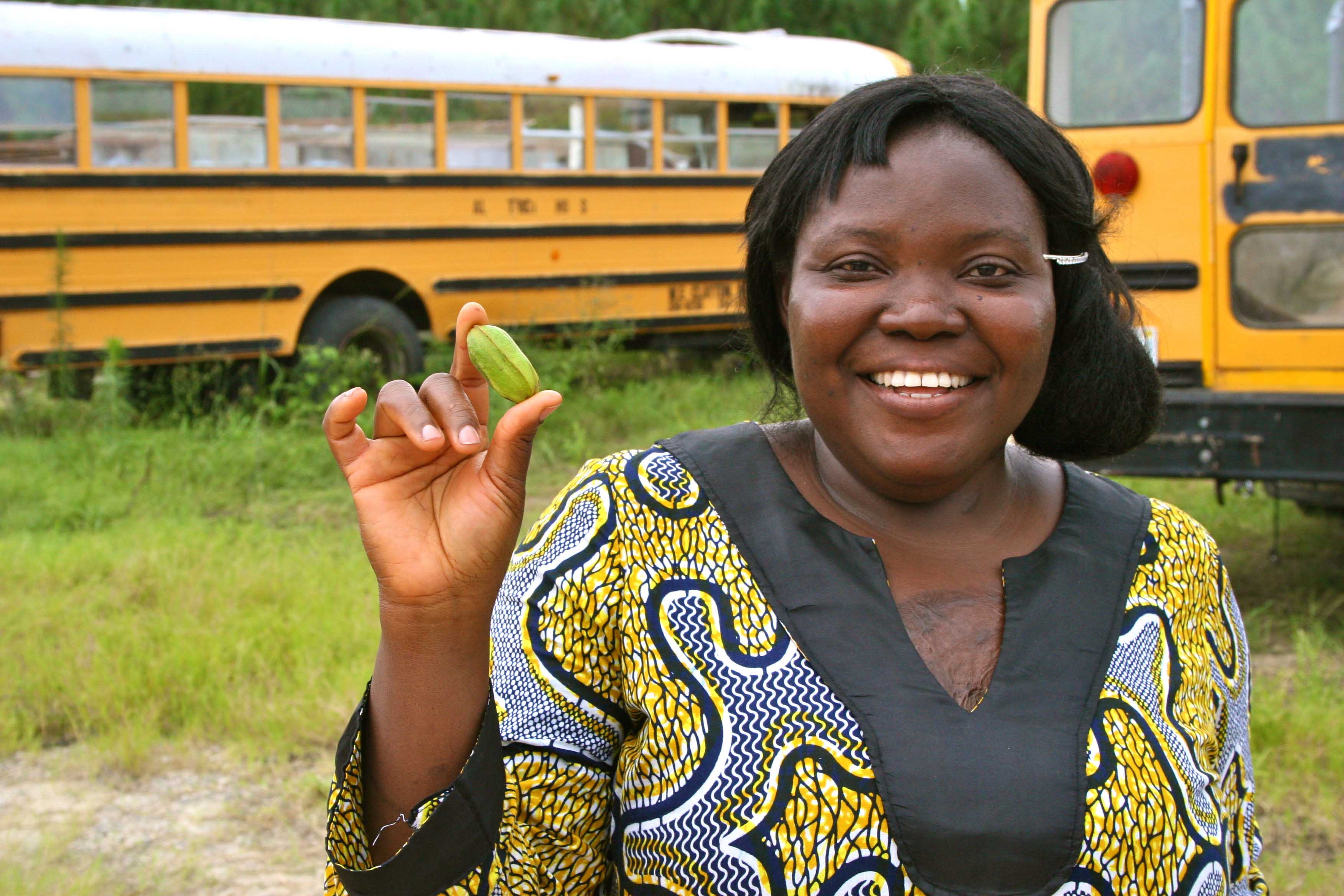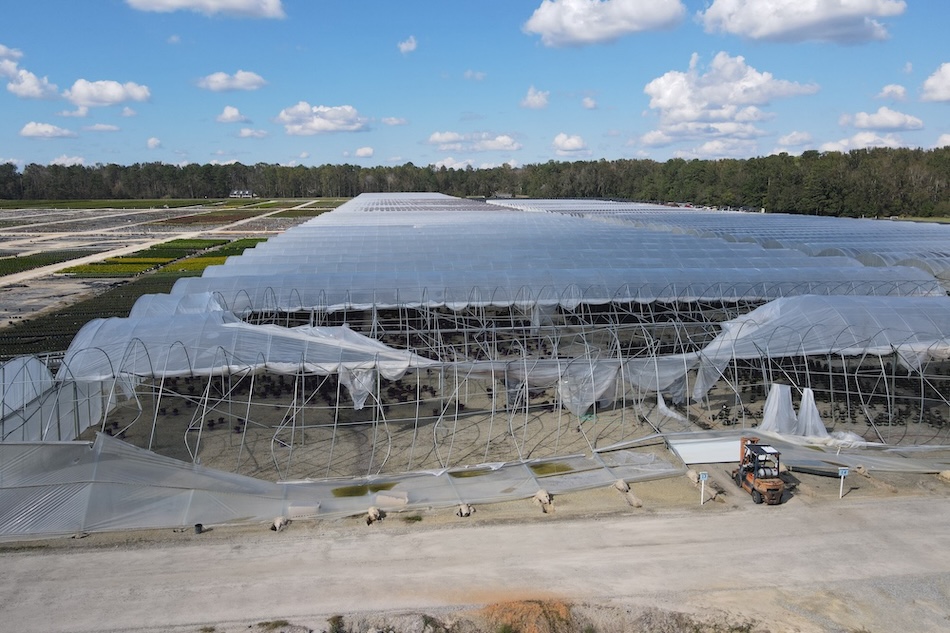Farmers, entrepreneurs and policymakers — representing 13 different African nations from Mauritania to South Africa — visited the University of Georgia campus in Tifton to learn about farming practices, research and government programs supporting agriculture in Georgia.
Sponsored by the U.S. Department of the State, the July 26 visit was part of a month-long tour providing the African leaders with information on “innovative and long-term strategies to make food more plentiful, available, safe and affordable.”
The Center of Innovation for Agribusiness, a state-funded business incubator that works to foster economic development in Georgia, hosted the delegation. Members of the center, UGA faculty, the staff of both U.S. Representative Austin Scott and Senator Johnny Isakson, a USDA researcher, and an official from the Georgia Department of Agriculture made presentations to the group.
Center project manager Chris Chammoun discussed the center’s involvement in developing bio-fuels, aerial imaging technology and secondary markets for Georgia farmers. He cited blueberry juice as an emerging opportunity for the state’s number one fruit crop. Sarah Cook, the center’s special projects coordinator, spoke about the Center’s role in helping small processors reach the marketplace.
UGA professor and Extension economist Nathan Smith explained the factors currently affecting farming’s economic outlook and the five p’s of Georgia agriculture: peaches, peanuts, pecans, pines and poultry.
From the agricultural producers’ side, the economic downturn has not been all bad news, Smith said. The decrease in the value of the U.S. dollar has strengthened exports, and lower interest rates have helped reduce on-farm costs.
However, the long view may not be as a rosy.
“I believe, as an economist, that inflation is coming,” Smith said.
George Vellidis, UGA professor of biological and agricultural engineering, outlined precision agriculture as a way to make farmers more competitive by providing them with information to make better decisions in the field.
Along with other members of the UGA Precision Ag Team, Vellidis has worked to help farmers identify and manage field variability — parts of their fields, for example, that might hold extra water or nitrogen. With more detailed information about their land and their crops, farmers can use less fertilizer and less irrigation, decreasing their costs and increasing their profit margins.
With production costs outstripping commodity prices, growing global competition and several of years of drought in Georgia, it is more important than ever for Georgia farmers to carefully manage their inputs, Vellidis said.
He pointed to remote sensors already on the market that can transmit minute-by-minute information about nitrogen levels and irrigation directly from the field to a farmer’s computer or smart phone.
Some among the African delegation raised the question of the need and expense to incorporate so much technology in farming, but Vellidis explained that commodity farmers in the U.S. needed this technology because of the size of their farms. Sophisticated information technology is not as necessary on small farms, where farmers have a more intimate knowledge of their fields.
Precision agriculture is a mentality about efficiently utilizing resources that can be applied regardless of scale, Vellidis said.
“Precision agriculture is a philosophy,” he said.
Greg Fonsah, UGA fruit and vegetable economist, laid out the unique organization of the UGA College of Agriculture and Environmental Sciences and the invaluable role that Extension plays in the success of agriculture in the state. Local agents bring cutting-edge research from the University of Georgia to farmers within their county. At the same time, UGA economists provide feasibility studies that allow farmers to receive loans to make improvements to their farm.
“Our farmers trust our local Extension agents,” said Donnie Smith, director of the Center of Innovation for Agribusiness.
After a presentation at Dr. Fonsah’s banana trials outside of the UGA Tifton Campus Conference Center, the trip to Tifton concluded with a tour of Rutland Farms and a quick snack of banana pudding and lemonade at the Rutland Famers Market.
The trip to Tifton marked the end of the African delegation’s tour of U.S. agricultural facilities.
“Thank for you saving the best for last," Donnie Smith said to the group.









